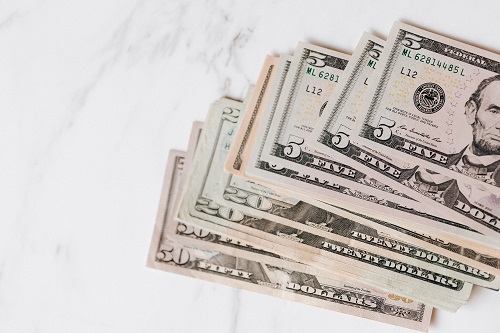
The USD has been losing value against the Yen, Euro and the CHF for the past month! Meanwhile currency traders apparently have not yet started their summer holidays.
As a result, the usual doomsday scenarios for the end of USD supremacy have been taken out of drawers. Dusted, and updated and being served in major news outlets.
The latest is Le Temps with a front-page piece called ‘USD is bending dangerously’ by Emmanuel Garressus on July 29.
They base their argument on the fact that the USD from the start of the Covid-19 crisis has gone from 1.07 to the Euro to 1.17, down almost 10%.
What does currency experts predict with the USD loosing value?
Ever since 1985, currency experts have been predicting the end of the USD. In 1985, the G-5 countries signed the Plaza Agreement. It was named after the NYC hotel where the talks were held, and incidentally belonging to Donald Trump at that time. The agreement called for intervention of the G-5 counties to depreciate the USD. The purpose was to help cut the US budget deficit, reduce the Japanese trade surplus with the US, and control reckless trading.
The brain behind this was James Baker, President Reagan’s Treasury Secretary. Who would become Bush father’s secretary of state, and finally help win the election of Bush son against Al Gore.
Mr. Baker wanted the USD to depreciate and got he wanted. This is pure example of American voluntarism in financial markets. With this agreement, the Americans stopped net Japanese investment in the US economy (trophy purchases like Columbia Pictures, real estate, etc). Which caused a mini-crash in the markets in 1987 (deflating the stock market bubble).
The Japanese economy never recovered from the effects of the Plaza Agreement.
The sense behind the USD losing value?
There are other implications that comes with the USD losing value. For the average American (who does not have a passport) the relative value of the USD against other currencies does not mean much. A very low percentage of Americans travel outside the US. Hence can gauge their purchasing power (unlike Europeans).
The USD is a tool among others for the US government to maintain their control over the global financial system. To push their political and economic agenda on other nations.
On a subsidiary level, a weak USD helps with their exports. It also helps positively the balance sheets of the GAFA which get a substantial part of their earnings outside the USD zone.
A strong Euro is detrimental to the European recovery efforts from the current financial crisis. Due to covid-19. Italian, German, Dutch exporters are penalized.
We should not forget that the Chinese Yuan is unofficially pegged to the USD (by intervention of the Chinese government). And hence weak USD means a weak Yuan against other major currencies.
I would like to remind readers that a few years ago, the same doomsayers were forecasting 1.60 to the Euro. As well as the replacement of USD as reserve currency by the Euro.
We all know the result, the Euro crisis, Greek, Spanish, Italian meltdowns, among many other crisis.
The strength of the US is its vast political, military and judiciary ( extraterritorial reach of US courts) power.
Until Europe or China can grow powerful in all three areas, the US will continue to dictate world affairs and the strength of their currency. Whether we like it or not.
And this , whoever is elected to thew White House in November.
I am Ahmet Gokay,
Finance and English professor with many years of experience in finance and economics in Europe, the US, and the Middle East. A believer in the power of children education and changing the world by passing the knowledge and experience to younger generations; The leaders of tomorrow. Visit my homepage here.
Or do you have thoughts and insights you would like to share? post your comments below.
